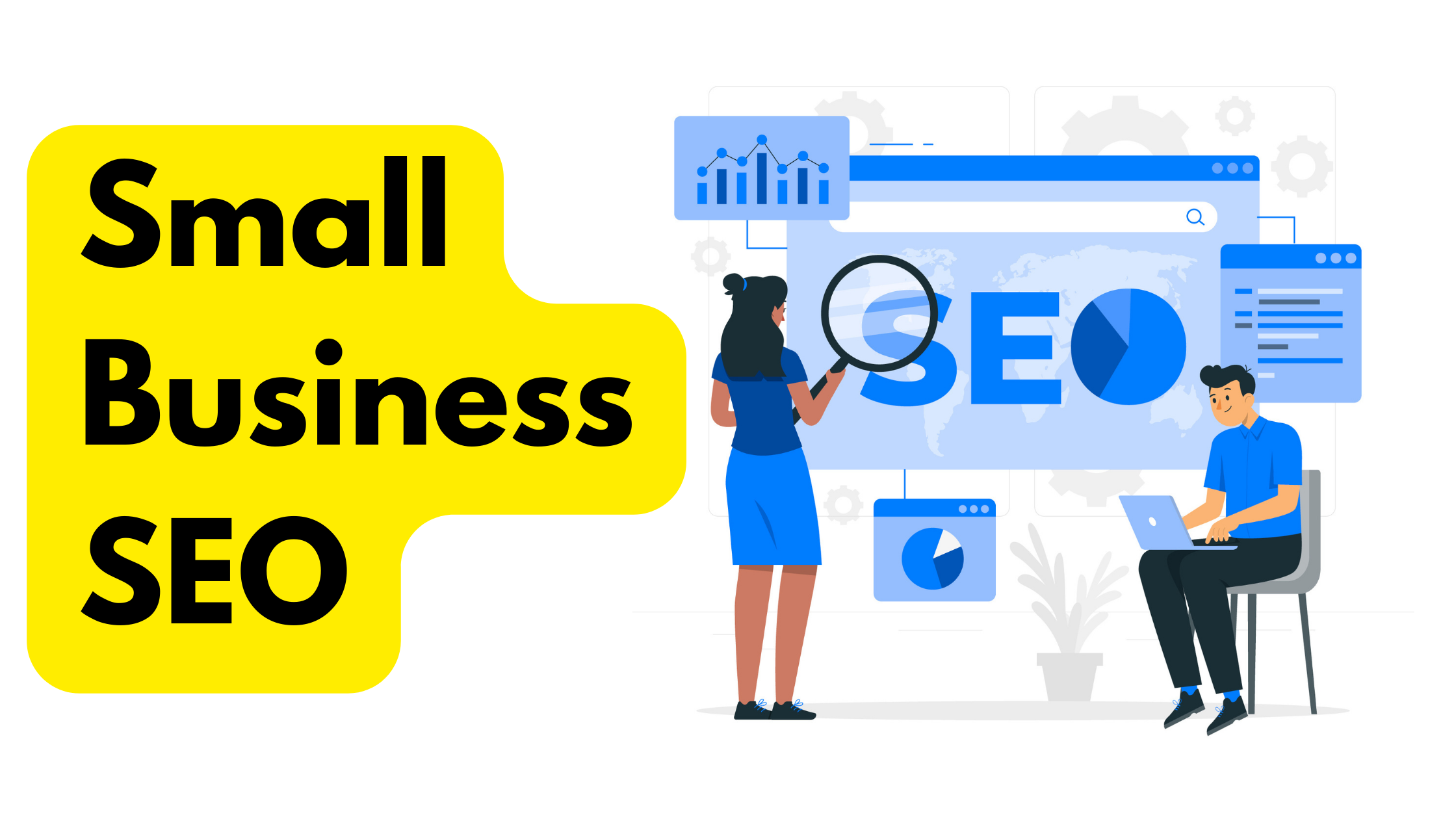SEO, or Search Engine Optimization, is essential for small businesses to improve their online visibility and attract more customers. By optimizing your website’s structure, speed, and content with relevant keywords, you can rank higher in search engine results. Focus on local SEO, claim your Google My Business listing, and encourage customer reviews to enhance credibility. Engage in content marketing, build high-quality backlinks, and stay updated with SEO trends. Consistently track performance with tools like Google Analytics and adapt your strategy as needed. Effective SEO can drive sustainable growth and boost your business’s online presence.
What is SEO?
SEO, or Search Engine Optimization, is a way to make your website show up higher on search engines like Google. The goal is to get more people to visit your site without paying for ads. SEO involves improving your website’s content, structure, and metadata, and getting other websites to link to yours. This makes your site look more trustworthy and helps bring in more visitors. SEO includes both on-page strategies (like using the right keywords and having good content) and off-page strategies (like getting links from other sites and social media shares).
Why is SEO Important for Small Businesses?
SEO is super important for small businesses because it helps more people find them online. When a business shows up higher in Google or other search results, it means more people visit their website. This can lead to more sales because customers trust businesses that appear at the top. SEO is also cheaper than ads and keeps working for a long time. Small businesses can also focus on local SEO to reach nearby customers, which is great for getting more sales. Overall, good SEO helps small businesses stand out even against bigger ones.
- More People See Your Website: When your website ranks higher in search results, more people visit it.
- People Trust Your Business More: If your website is on the first page of search results, people think it’s reliable.
- Save Money on Ads: SEO costs less than ads and brings in customers who are interested in what you offer.
- Get More Interested Customers: SEO helps attract people who are actively looking for what your business provides.
- Grow Your Business Over Time: SEO keeps bringing in visitors long after you’ve set it up, helping your business grow steadily.
Building a Strong SEO Foundation
Building a strong SEO foundation means setting up your website so search engines can find and understand it easily. This involves organizing your site logically with clear URLs and ensuring it works on all devices. Speed matters, so optimize images and use fast hosting. Create valuable content that naturally includes relevant keywords. Use technical details like meta tags, alt text for images, and structured data to help search engines understand your content better. Also, link related pages internally to make navigation simple for users and search engines. These steps improve how your site appears in search results, driving more traffic.
1. Website Structure and Navigation
– Make your website easy to navigate.
– Use clear URLs that show how your site is organized.
– Ensure your site works well on all devices.
2. Site Speed and Performance
– Speed up your site by shrinking images and reducing CSS and JavaScript.
– Use fast, reliable web hosting.
– Fix any errors or broken links.
3. Content Optimization
– Find relevant keywords through research.
– Naturally use these keywords in titles, headings, and text.
– Create useful and engaging content.
4. Technical Metadata
– Optimize title tags and descriptions for each page.
– Use alt text for images and videos.
– Use structured data to help search engines understand your content.
5. Site Architecture and Internal Linking
– Organize your content logically.
– Link related pages together.
– Make sure your site is easy for search engines to explore.
Crafting an Effective SEO Strategy
Once your site is set up, focus on keywords, optimizing pages, building links, and creating valuable content to improve your SEO.
1. Keyword Research and Targeting
– Find important keywords for your business.
– Use a mix of general and specific keywords.
– Pick keywords with good search traffic and manageable competition.
2. On-Page Optimization
– Use target keywords in titles, headings, and text.
– Make sure your pages are helpful and interesting.
– Add good descriptions and captions to images, videos, and more.
3. Off-Page Optimization
– Get noticed in industry groups and forums.
– Get good links from respected sites to raise your rank.
– Use social media to share and chat with customers.
4. Local SEO for Small Businesses
– If you have a store, focus on local SEO.
– Claim and fix your Google My Business page.
– Ask happy customers to leave good reviews online.
5. Content Marketing
– Plan content that your customers like.
– Make blogs, videos, and graphics that inform and interest.
– Put out new, great content often.
6. Tracking and Getting Better
– Check how well your site does with Google tools.
– Watch how many visitors come, what ranks your keywords get, and how well you sell.
– Change your SEO to do better with what you learn.
Overcoming Common SEO Challenges for Small Businesses
Small businesses often face unique challenges when implementing SEO strategies.
Sure, here’s a simplified version:
1. Limited Resources and Budget
– Use free or cheap SEO tools to get more from what you spend.
– Focus on the most important SEO jobs for the most help.
– Get pros to help with SEO if you need them.
2. Lack of SEO Expertise
– Learn about SEO basics online or in classes.
– Ask pros or join groups online for advice.
– Grow your SEO skills over time.
3. Keeping Up with Algorithm Updates
– Know about big changes in how search engines work.
– Make great content that helps people.
– Watch news about your field and change how you work to do better.
4. Local Competition and Saturation
– Look at others near you and find ways to be better.
– Show what makes you special online.
– Do SEO just for your area, like parts of town or famous places.
5. Measuring and Showing Your Win
– Set goals and check how well you do.
– Use tools to see how well SEO helps.
– Tell others how SEO helps your business make more money.
Staying Ahead: New SEO Stuff for Small Businesses
SEO always changes. To do well, watch new things and change what you do.
1. Voice Search
– Write like people talk for voice search.
– Use long and clear words people ask about.
– Make your site good for phones and fast.
2. Videos and More
– Make more videos, sounds, and pictures for SEO.
– Put good names and words on your videos.
– Share your work on YouTube and social media.
3. Featured Answers and Top Spot
– Try to be the best answer people see first.
– Use good words and lists to show up first.
– Write to be in the top spot when people ask.
4. Phones and Web Rules
– Make your site good for phones to use it first.
– Make your site fast and easy to see.
– Always make your phone site work better.
5. Show You’re Great Online
– Show how good you are with good facts and info.
– Get more good reviews and likes from others.
– Always make new and good stuff people like.
SEO helps small businesses get seen online. More people come to your site, so you get more sales. Learn SEO, find good words, make good things, and watch how you do. Change what you do to make more from SEO.




